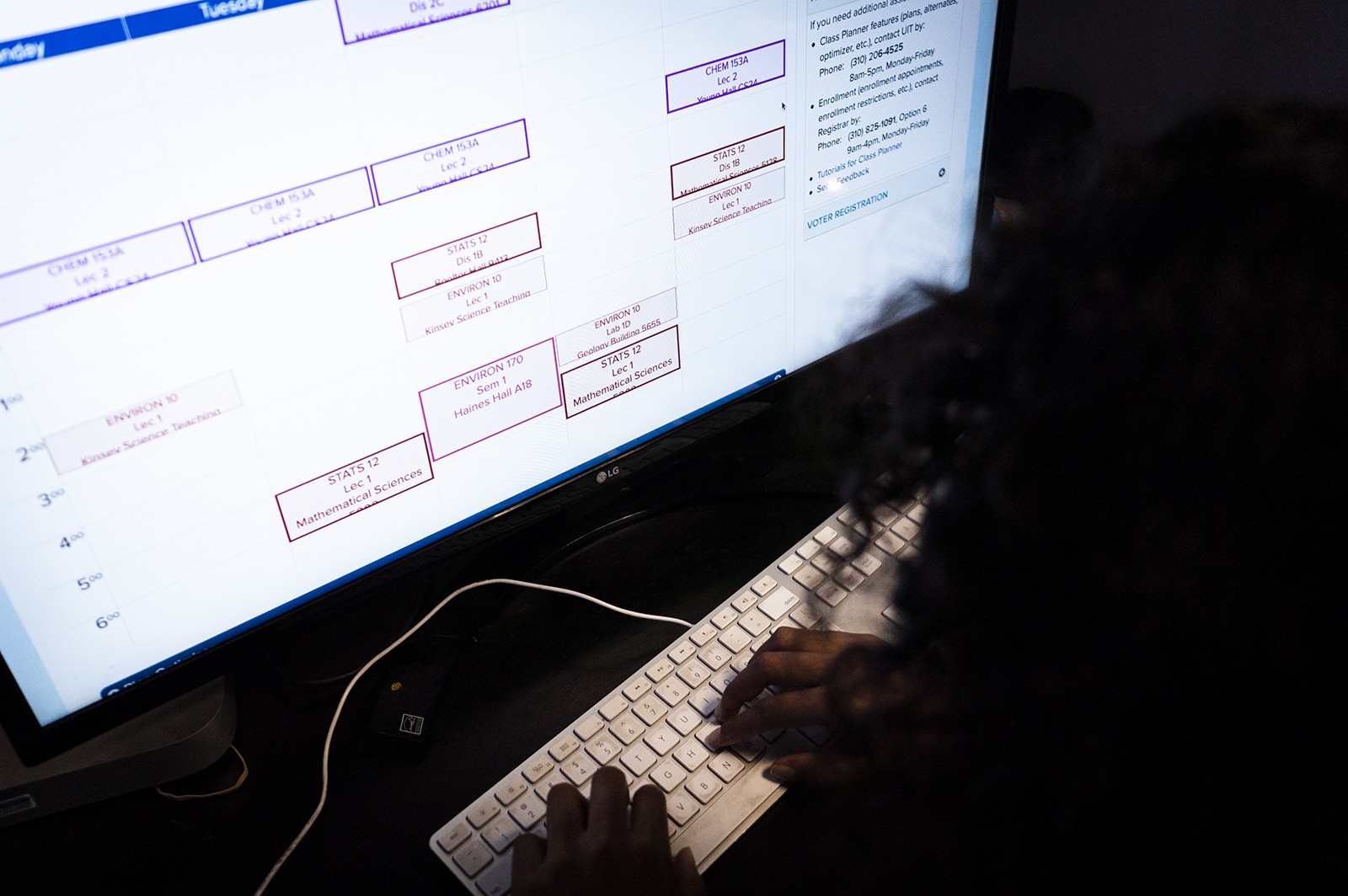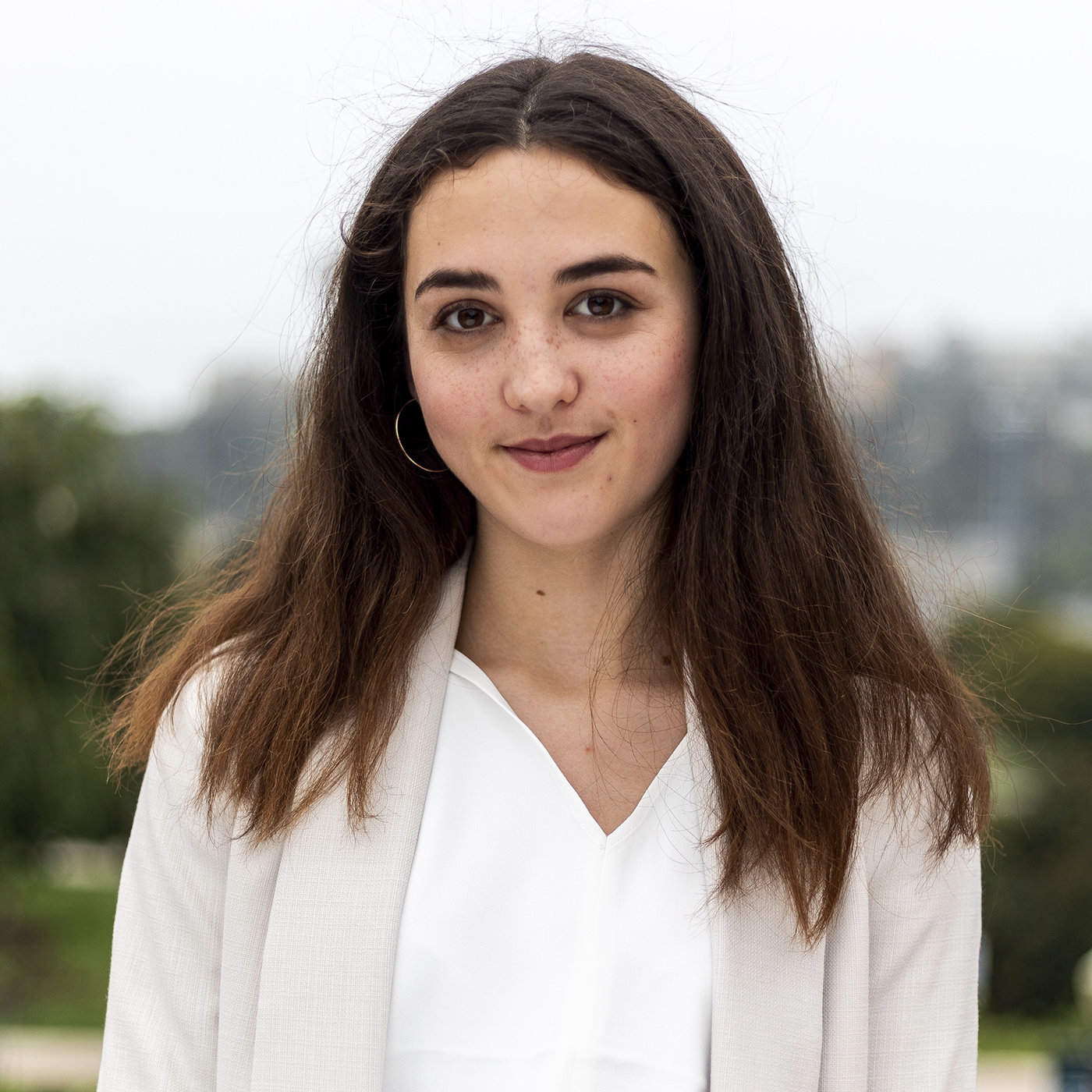UCLA should offer specialized orientation to help 1st-generation students acclimate

New Student Orientation won’t help answer first-generation college students’ worries about heading into a four-year university. A specialized orientation that can answer and alleviate the concerns of first-gen students can help ease their transition into college. (Daily Bruin file photo)

By Rachel Durose
March 8, 2020 9:23 p.m.
Imagine being asked how to navigate Boelter Hall if you can’t even find Royce Hall.
That’s equivalent to the lofty challenge students at UCLA face when they arrive for New Student Orientation.
Add being a first-generation student to the mix, and the challenge becomes even more disorienting.
UCLA hosts 11 New Student Orientation sessions each summer, three of which hold spots specifically for international and out-of-state students. Transfer students can choose from a set of nine one-day transfer orientation dates or register for the longer three-day NSO recommended for first-year students.
NSO is organized by the New Student & Transition Programs office and run by student employees called New Student Advisors. The NSA cohort is trained throughout the spring quarter prior to the summer of their employment.
While NSA cohorts are often applauded for their diversity, the program lacks a full-time staff member dedicated to the experience of first-generation students, thereby shortchanging a major population that needs extra assistance transitioning to UCLA. UCLA media relations did not respond to request for comment on this issue.
First-generation college students need a separate NSO in which they can learn to navigate the complexities of college in an environment specifically catered to their experience. Attending NSO is highly encouraged by the university, and students who fail to pay the $445 to attend are instructed to contact the New Student & Transition Programs office before enrolling for their first quarters at UCLA. But whether it’s a phone call or an in-person orientation, both options currently fail to create an immersive experience for first-generation students going through a potentially rocky transition.
Nearly one-third of UCLA undergraduates are first-generation college students, and we deserve that representation in our first introduction to higher education.
The point of NSO is to be an “extensive introduction to the academic and campus life at UCLA,” and given that first-generation students are statistically less likely to graduate on time, they need specific resources to get off on the right foot.
This lack of understanding isn’t just missing in the administration but in the education of advisors themselves.
Kesia Eng, a fourth-year political science student, summer 2019 NSA and one of the founders of the Association of First-Generation Undergraduates at UCLA, said that while there isn’t a specific orientation for first-generation students, students can be aided through the Academic Advancement Program’s bridge programs and the First to Go office.
“During the training (as an NSA), I would say we are very mindful and inclusive of all the different identities and groups that come onto our campus,” Eng said. “So while there isn’t specifically, ‘Oh, this is a first-gen student and this is what you should say to a first-gen student,’ that is something we always keep in mind during our training.”
Despite Eng’s personal experience with her cohort, some first-generation students face the reality that advisors who aren’t first-generation students themselves seem unprepared to deal with their questions.
Or in some cases, unwilling.
Vanessa Newman, a third-year public affairs student, said she felt a lack of access to and care in both transfer-student and first-generation student programs on campus. Newman said she paid more money to arrive at her NSO a day early, but the experience was still not a positive one.
“My New Student Advisor was not familiar with being a transfer student or being first generation,” Newman said. “Everyone was a transfer student in my group, and they also were feeling judged by our NSA – she didn’t answer questions or she would give us sarcastic replies if we were confused about something.”
When individuals who are paid to welcome students to campus turn a cold shoulder to first-generation students, it only further perpetuates feelings of isolation upon entering UCLA’s campus.
And given that NSA cohorts have hours of training each week and must pass bi-weekly exams with a 90% or higher, according to Eng, this is not an issue of lack of time or training.
But with the right outreach, not all experiences are negative.
David Deng, a first-year computer science student who is not first generation, said he attended an orientation with reserved spots for international students and found his NSA particularly helpful.
“I especially like how they had someone who was in your major to help you, and even though I don’t see my orientation friends a ton, the experience made me feel like I belonged at the school,” Deng said. “We had a few international students in our group and it was really interesting how even though we grew up in different countries and had different experiences, there was still a lot that we all had in common.”
These beneficial experiences are predicated on time being set aside for international and out-of-state students – and they seem to work. But considering these populations make up 8% and 16% of freshmen admits, respectively, it is a major oversight not to create a similarly specialized program for the large first-generation population at UCLA.
While some may argue that having separate orientations for first-generation students would only further ostracize them, UCLA needs to acknowledge this divide already exists. If having separate orientations were truly isolating, out-of-state and international students would not be walking away with positive experiences and relationships.
First-generation college students deserve a safe space to question, learn and grow before entering a new community.
By the end of a specialized orientation, first-generation college students will be able to do a lot more than just navigate Boelter.
They’ll be able to excel alongside their peers.

